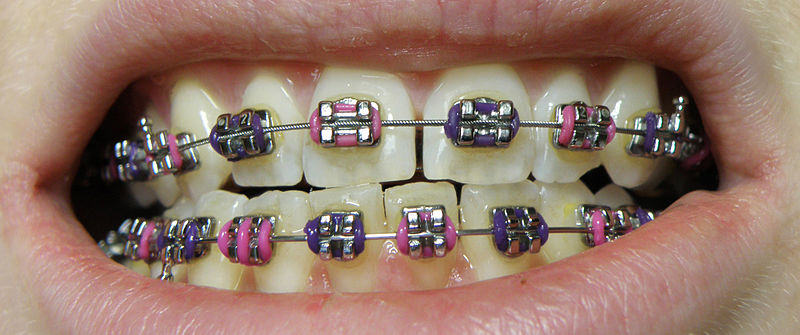Digging Into the Relevance of Orthodontics in Improving Oral Health And Wellness
The value of orthodontic treatments extends beyond plain cosmetic renovations, delving into the complexities of dental health maintenance and its far-reaching effects. By resolving misalignments and malocclusions, orthodontic therapies add to a spectrum of benefits that go past the confines of a straighter smile.
Historical Advancement of Orthodontics
Throughout the centuries, the area of orthodontics has actually undergone an impressive historical evolution, formed by innovations in dental science and changing social perspectives in the direction of oral visual appeals. The beginnings of orthodontics can be mapped back to old civilizations like the Egyptians and the Greeks, that utilized various approaches to correct teeth. However, it was just in the 18th century that orthodontics started to become an unique dental specialty. French dental practitioner Pierre Fauchard is frequently attributed as the "papa of contemporary orthodontics" for his innovative strategies in the 1700s.
The 19th and 20th centuries saw substantial improvements in orthodontic treatments, with the introduction of dental braces, retainers, and other devices to correct malocclusions. The establishment of orthodontic cultures and the standardization of training further boosted the area's integrity and efficiency. In current years, technical advancements like unnoticeable aligners and digital imaging have reinvented orthodontic methods, making treatments a lot more comfy and discreet for people. On the whole, the historic evolution of orthodontics reflects a continuous quest for boosting dental wellness and boosting dental aesthetic appeals.
Influence of Orthodontic Treatments on Oral Health
Orthodontic therapies play a critical function in maintaining ideal dental hygiene by addressing imbalances and bite issues that can add to dental health and wellness troubles. Misaligned teeth can create holes that are hard to reach with regular cleaning and flossing, resulting in plaque buildup, tooth degeneration, and gum disease. By correcting the teeth with orthodontic interventions such as dental braces or clear aligners, people can enhance their dental hygiene practices and minimize the risk of developing these oral health concerns.
Additionally, orthodontic therapies not just boost the visual look of the smile but additionally make it easier to clean up the teeth efficiently. When the teeth are effectively lined up, it becomes less complex to clean and floss completely, decreasing the chances of food particles getting entraped in between the teeth and causing bacterial development.
Psychological Benefits of Orthodontic Treatments
Orthodontic therapies not only boost the looks of one's smile but likewise play an important function in improving mental wellness. By correcting these dental imperfections, orthodontic treatments empower people to feel even more confident in their appearance, leading to enhanced self-confidence and a favorable self-image.
Moreover, the psychological advantages of orthodontic therapies reach enhanced communication skills and total top quality of life. When people feel more certain concerning their smiles, they are most likely to participate in social activities, speak out in public setups, and express themselves freely. This newly found confidence can have a profound effect on numerous elements of life, including personal relationships, career possibilities, and psychological well-being. Ultimately, orthodontic treatments not only straighten teeth but also straighten individuals towards an extra confident and favorable future.
Prevention of Oral Health And Wellness Issues Through Orthodontics
Just how can orthodontic interventions add to averting potential dental health complications?
Orthodontic treatments play a critical function in stopping numerous dental wellness difficulties by dealing with issues such as misaligned teeth, attack problems, and overcrowding. Among the primary methods which orthodontics helps in avoiding dental health problems is by straightening the teeth properly. Misaligned teeth can cause problem in cleaning, which enhances the risk of gum condition and tooth decay. By straightening out the teeth through orthodontic treatments like braces or clear aligners, people can preserve better dental hygiene, decreasing the chance of such complications.
Moreover, orthodontic therapies can likewise remedy bite issues, such as underbites, overbites, and crossbites. These problems not only affect the positioning of the teeth yet can likewise cause jaw pain, uneven endure the teeth, and even temporomandibular joint pediatric dental care (TMJ) conditions. By resolving these bite issues through orthodontics, patients can prevent possible oral health issues in the future.
Orthodontics as an Entrance to Boosted Self-esteem

Study has revealed a clear connection in between oral appearances and self-esteem, with several people reporting increased confidence and a more favorable self-perception complying with orthodontic therapy. Orthodontics not just contributes to dental health yet likewise offers as a portal to enhanced self-worth and general wellness.

Conclusion
In verdict, orthodontics plays a vital role in enhancing oral health by addressing historic evolution, enhancing dental hygiene, offering psychological advantages, avoiding complications, and boosting self-worth. These aspects highlight the significance of orthodontic treatments in advertising overall dental wellness and well-being. It is clear that orthodontics is not only concerning straightening teeth but also about ensuring a healthy and positive smile for people.

Orthodontic interventions play a critical function in protecting against various oral health and wellness difficulties by addressing issues such as misaligned teeth, bite problems, and congestion. These facets highlight the significance of orthodontic treatments in promoting general dental health and wellness.